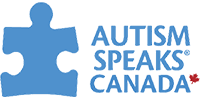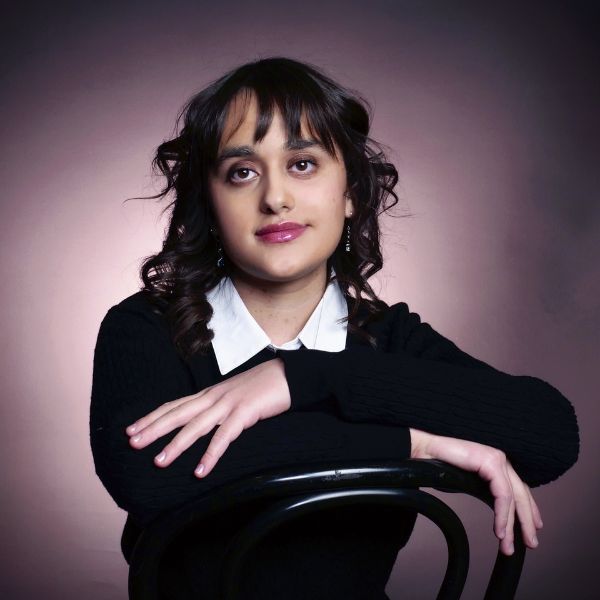DCCI Scholarship for Canadian Students with Disabilities Announcing the 2024 Scholarship Winner:
Asha Khodarahmi Bron from the University of Calgary









Disability Credit Canada understands that earning a post-secondary degree opens doors to countless opportunities. Yet, for millions of Canadians with disabilities, the journey toward higher education comes with extra challenges. To tackle these obstacles, we’re committed to ensuring that Canadian students with disabilities have every opportunity to reach their academic aspirations. That’s why, in 2019, we introduced the Disability Credit Canada Scholarship for Canadian Students with Disabilities, offering $1,000 to a high school senior aiming to attend a recognized Canadian institution. This scholarship lightens the financial load tied to higher education.
Beyond this scholarship, we provide resources that assist families in securing the Disability Tax Credit and Child Disability Tax Credit, along with other key tools to ease the financial pressures on these students and their families.
DCCI Scholarship for Canadian Students with Disabilities Recipient for 2024
Continuing our tradition, we are pleased to announce Asha Khodarahmi-Bron as the recipient of the 2024 DCCI Award for Canadian Students with Disabilities. Asha, a recent high school graduate from Okotoks, Alberta, is about to begin her postsecondary academic journey at The University of Calgary’s Schulich School of Engineering in Biomedical Engineering.

ASHA KHODARAHMI-BRON,
A postsecondary biomedical engineering student at the university of calgary’s schulich school of engineering
Asha Khodarahmi-Bron’s journey is one of resilience and determination. Soon to begin her studies in biomedical engineering at the University of Calgary’s Schulich School of Engineering, she has already faced severe challenges due to neurofibromatosis type 1, including a 90-degree spinal curvature caused by scoliosis and kyphosis by grade 4. Despite intense physical pain and limitations, Asha refused to let her condition dictate her future.
In grade 5, Asha faced a challenging three and a half months in the hospital, where she underwent treatment with a medical halo to help straighten her spine. Despite the physical and emotional toll, she stayed determined, focusing on her education as something she could hold onto and shape.
During our conversation with Asha, she shared how her time in the hospital sparked a passion for biomedical engineering. Witnessing the struggles of fellow patients inspired her to design better medical equipment for those with neurofibromatosis and scoliosis. Throughout high school, Asha excelled academically, achieving top grades in Calculus and English, and adapted ingeniously by using a portable music easel in class.
We spoke with Asha to learn more about her remarkable journey and how she has navigated the challenges of living with neurofibromatosis type 1. We also discussed her aspirations for a promising and impactful future.
Here is how she envisions it:
1) How did you hear about our Scholarship?
I first came to know about the DCCI Scholarship for Canadian Students with Disabilities 2024 when I was researching various scholarships that would apply to my field of study. It was suggested that I look into scholarships for people with disabilities.
2) Please tell us about your impairments and some of the challenges you face because of them.
At present, I suffer from mobility issues involving my spinal cord. As my upper neck is fused all the way down to my lower back, I cannot bend or turn my neck or spine. This makes it impossible to bend my neck to see a desk to take notes. I have overcome this by using a musical easel to raise my notes to eye level so I can write or read. Due to the tension I suffer from, which is caused by movement involving my neck and spine, I experience constant headaches, back pain, and daily fatigue.
I manage this by taking Tylenol and resting throughout the day. I also cannot carry any weight above the suggested 10 pounds, with a maximum 20-pound limit. Another consequence of my disability is that one of my lungs is compressed, making me more susceptible to illnesses and causing longer recovery times than the average young adult. I also have to be careful with coughing, as one side of my pencil-thin rib cage could break if the cough is severe enough.
3) What will you study at school and what are your long-term career goals?
I want to get my master’s in Biomedical Engineering. I hope to specialize in treatments for Neurofibromatosis Type 1.
4) How does having this impairment make pursuing a post-secondary education more challenging?
My energy levels are reduced and are substantially lower than the average young adult. I need to constantly rest, which can be a struggle when classes can be a distance away from the residence. Because of this, I organized my schedule to begin early in the morning and end before dinner. I also will be doing first-year engineering over two years to be able to manage the course load. This will lengthen my degree, but I will be able to take rest throughout the day to limit my physical pain
5) How does it feel to have been the recipient of this award?
I feel honored; it gives me confidence to go into my studies with the perspective that through perseverance and faith, I can attain my goals.
6) How will this scholarship help you, moving forward?
As I cannot manage work and my studies, this will help cover the cost of my studies until I have enough experience to get a degree in the workforce that does not require physical labor.
7) Is there a message you’d like to convey to future applicants?
Education and perseverance helped me overcome my disability. I hope that future applicants have the faith to continue to persevere through their struggles to achieve their own academic goals.
Congratulations, Asha!
At Disability Credit Canada, we believe that Asha, with her resilience and unwavering dedication, is on a path toward an inspiring and impactful future in the field of biomedical engineering! We would also like to express our sincere appreciation to everyone who submitted their applications for the scholarship designated for Canadian students with disabilities for the upcoming academic year of 2024.
To all the students beginning their higher education journey, we send our warmest wishes for a safe, successful, and fulfilling year of learning ahead.

